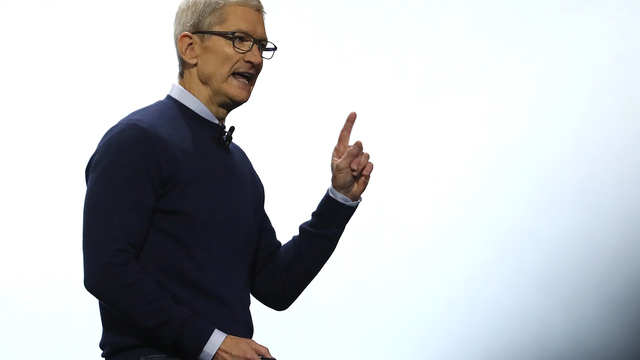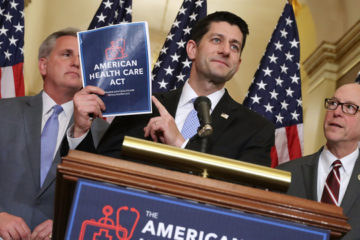Apple CEO Says Repatriation Tax Should Be Mandatory Levy

(Bloomberg) —Apple Inc. Chief Executive Officer Tim Cook said any new, lower federal tax rate on U.S. companies’ overseas earnings should be mandatory for all companies, and proceeds should be spent on upgrading U.S. infrastructure.
“It should be a required tax,” Cook said in an exclusive interview with Bloomberg Television. “And so you’re not asking the people that have had earnings from their international subsidiaries if they’d like to bring back money. You’re saying that, you must pay the government X percent now or over some period of time.”
Apple has $257 billion in cash reserves, and most of it is outside of the U.S. Like many CEOs, Cook has supported U.S. President Donald Trump’s repatriation push. During his campaign, Trump proposed requiring companies to pay a one-time 10 percent levy on their offshore income — less than a third of the U.S. corporate income tax rate.
Unlike most developed nations, the U.S. applies its 35 percent corporate income tax to global earnings, not just U.S. income. But companies can defer tax on their overseas profits until they decide to return those earnings to the U.S., or “repatriate” them. To delay those bills, companies including Apple, Microsoft Corp. and Alphabet Inc. have stockpiled an estimated $2.6 trillion offshore.
Economists say removing the incentive to hoard cash outside the U.S. would stimulate the world’s largest economy by encouraging domestic investment. Investors are keen for the money to come home because they expect much of it to be spent on stock buybacks and dividends.
Cook told Bloomberg Television that he supports a “deemed repatriation” tax rule — the approach that Trump and congressional Republicans favor. Under that approach, companies would be deemed to have repatriated their cash already — whether they plan to or not — and they’d automatically owe the tax. Payment schedules would almost certainly be spread over years.
Trump and congressional Republicans propose to impose the deemed repatriation tax as part of a transition away from the global tax system. The ultimate tax rate remains unclear; House Speaker Paul Ryan favors imposing a rate of 8.75 percent for earnings held as cash and cash equivalents and 3.5 percent for earnings held in less-liquid investments.
As for proceeds from the tax, the U.S. should “use that money for a significant infrastructure spend in the U.S., because it creates jobs,” Cook said.
Cook has spoken to Trump on other big issues, such as climate change, but opted not to join the president’s advisory councils, describing them as not ” terribly productive” to Bloomberg.







No Comment